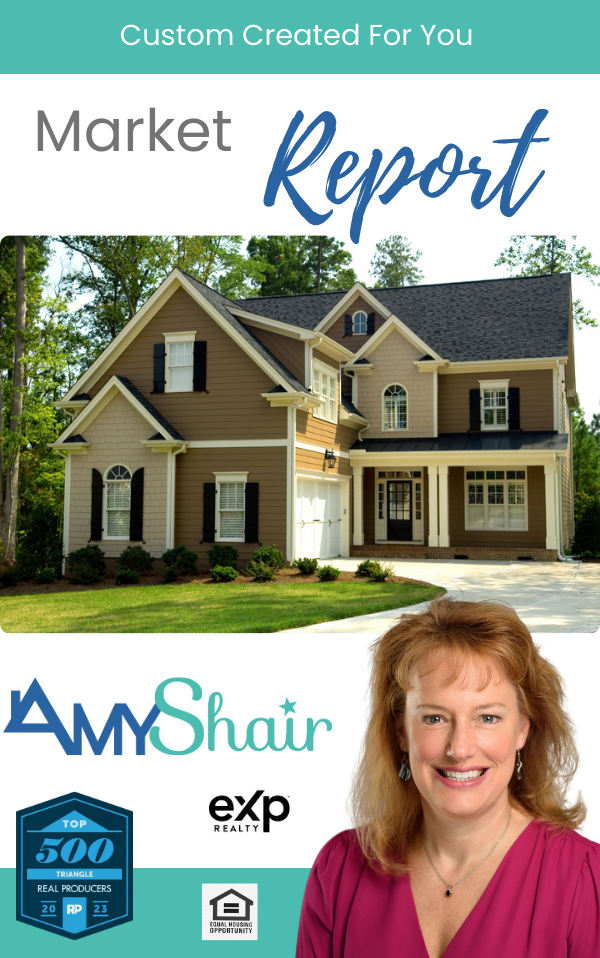Want the full market report for Raleigh, NC Homes for Sale?
Amy wants to ensure that you have all the information needed to make the best decisions when it comes to your home goals. When you enter your info below you will get instant access to the area's latest market report, complete with sales and demographic trends.

Schools In The Area
Browse local schools, complete with ratings and contact info.
Jeffreys Grove Elementary School
919-881-4910
Public
PK-5
Pine Hollow Middle School
919-694-8880
Public
6-8
Wake Young Women's Leadership Academy
919-508-9088
Public
6-12
Vernon Malone College and Career Academy
919-856-8119
Public
9-12
Jeffreys Grove Elementary School
919-881-4910
Public
PK-5
Quest Academy
919-841-0441
Public
KG-8
Pleasant Union Elementary School
919-870-4230
Public
PK-5
Barton Pond Elementary School
Telephone N/A
Public
PK-5
Combs Magnet Elementary School
919-233-4300
Public
PK-5
Sycamore Creek Elementary School
919-841-4333
Public
PK-5
Lynn Road Elementary School
919-870-4074
Public
PK-5
Wakefield Elementary School
919-562-3555
Public
PK-5
Raleigh Oak Charter
919-424-7626
Public
KG-6
Yates Mill Elementary School
919-233-4244
Public
PK-5
Partnership Magnet Elementary School
919-856-8200
Public
PK-5
Hilburn Drive Academy
919-571-6800
Public
PK-8
River Bend Elementary School
919-431-8010
Public
PK-5
Banks Road Elementary School
919-890-7333
Public
PK-5
Stough Magnet Elementary School
919-881-4950
Public
PK-5
Wiley Magnet Elementary School
919-856-7723
Public
PK-5
Abbotts Creek Elementary School
919-694-0555
Public
PK-5
Brassfield Elementary School
919-870-4080
Public
PK-5
Forest Pines Drive Elementary School
919-562-6262
Public
PK-5
Powell Magnet Elementary School
919-856-7737
Public
PK-5
Swift Creek Elementary School
919-233-4320
Public
PK-5
Vance Elementary School
919-662-2472
Public
PK-5
The Exploris School
919-715-3690
Public
KG-8
Walnut Creek Elementary School
919-857-9500
Public
PK-5
Leesville Road Elementary School
919-870-4200
Public
PK-5
Poe Magnet Elementary School
919-250-4777
Public
PK-5
Hunter Magnet Elementary School
919-856-7676
Public
PK-5
Conn Magnet Elementary School
919-856-7637
Public
PK-5
Underwood Magnet Elementary School
919-856-7663
Public
PK-5
Brier Creek Elementary School
919-484-4747
Public
PK-5
Brentwood Magnet Elementary School
919-850-8720
Public
PK-5
Wilburn Elementary School
919-850-8738
Public
PK-5
Baileywick Road Elementary School
919-518-0090
Public
PK-5
Joyner Magnet Elementary School
919-856-7650
Public
PK-5
Lacy Elementary School
919-881-4920
Public
PK-5
Douglas Magnet Elementary School
919-881-4894
Public
PK-5
Bugg Magnet Elementary School
919-250-4750
Public
PK-5
Wildwood Forest Magnet Elementary School
919-713-0600
Public
PK-5
Green Magnet Elementary School
919-431-8141
Public
PK-5
Lead Mine Elementary School
919-870-4120
Public
PK-5
Southeast Raleigh Elementary School
919-694-8444
Public
PK-5
Preeminent Charter
919-235-0511
Public
KG-8
York Elementary School
919-881-4960
Public
PK-5
North Forest Pines Elementary School
919-570-2220
Public
PK-5
Washington Magnet Elementary School
919-856-7960
Public
PK-5
Barwell Road Elementary School
919-661-5405
Public
PK-5
Root Elementary School
919-881-4940
Public
PK-5
Fox Road Elementary School
919-850-8845
Public
PK-5
Casa Esperanza Montessori Charter School
919-855-9811
Public
PK-8
Olds Elementary School
919-856-7699
Public
PK-5
Jeffreys Grove Elementary School
919-881-4910
Public
PK-5
Pine Hollow Middle School
919-694-8880
Public
6-8
Wake Young Women's Leadership Academy
919-508-9088
Public
6-12
Oberlin Magnet Middle School
919-881-4860
Public
6-8
Wake Young Men's Leadership Academy
919-664-5644
Public
6-12
Sycamore Creek Elementary School
919-841-4333
Public
PK-5
Lynn Road Elementary School
919-870-4074
Public
PK-5
Quest Academy
919-841-0441
Public
KG-8
Pleasant Union Elementary School
919-870-4230
Public
PK-5
Combs Magnet Elementary School
919-233-4300
Public
PK-5
Leesville Road Middle School
919-870-4141
Public
6-8
Barton Pond Elementary School
Telephone N/A
Public
PK-5
Raleigh Oak Charter
919-424-7626
Public
KG-6
Stough Magnet Elementary School
919-881-4950
Public
PK-5
Wiley Magnet Elementary School
919-856-7723
Public
PK-5
Magellan Charter
919-844-0277
Public
3-8
Abbotts Creek Elementary School
919-694-0555
Public
PK-5
Wakefield Elementary School
919-562-3555
Public
PK-5
Yates Mill Elementary School
919-233-4244
Public
PK-5
Wakefield Middle School
919-562-3500
Public
6-8
Moore Square Magnet Middle School
919-664-5737
Public
6-8
River Bend Elementary School
919-431-8010
Public
PK-5
Partnership Magnet Elementary School
919-856-8200
Public
PK-5
Banks Road Elementary School
919-890-7333
Public
PK-5
Hilburn Drive Academy
919-571-6800
Public
PK-8
Forest Pines Drive Elementary School
919-562-6262
Public
PK-5
Carnage Magnet Middle School
919-856-7600
Public
6-8
Brassfield Elementary School
919-870-4080
Public
PK-5
Baileywick Road Elementary School
919-518-0090
Public
PK-5
Conn Magnet Elementary School
919-856-7637
Public
PK-5
Vance Elementary School
919-662-2472
Public
PK-5
Wilburn Elementary School
919-850-8738
Public
PK-5
Walnut Creek Elementary School
919-857-9500
Public
PK-5
Swift Creek Elementary School
919-233-4320
Public
PK-5
Underwood Magnet Elementary School
919-856-7663
Public
PK-5
Poe Magnet Elementary School
919-250-4777
Public
PK-5
Hunter Magnet Elementary School
919-856-7676
Public
PK-5
Brier Creek Elementary School
919-484-4747
Public
PK-5
Joyner Magnet Elementary School
919-856-7650
Public
PK-5
Leesville Road Elementary School
919-870-4200
Public
PK-5
Brentwood Magnet Elementary School
919-850-8720
Public
PK-5
The Exploris School
919-715-3690
Public
KG-8
Powell Magnet Elementary School
919-856-7737
Public
PK-5
Lead Mine Elementary School
919-870-4120
Public
PK-5
Neuse River Middle School
919-266-8500
Public
6-8
Lacy Elementary School
919-881-4920
Public
PK-5
Green Magnet Elementary School
919-431-8141
Public
PK-5
Preeminent Charter
919-235-0511
Public
KG-8
Douglas Magnet Elementary School
919-881-4894
Public
PK-5
Southeast Raleigh Elementary School
919-694-8444
Public
PK-5
Pine Hollow Middle School
919-694-8880
Public
6-8
Wake Young Women's Leadership Academy
919-508-9088
Public
6-12
Oberlin Magnet Middle School
919-881-4860
Public
6-8
Wake Young Men's Leadership Academy
919-664-5644
Public
6-12
Quest Academy
919-841-0441
Public
KG-8
Leesville Road Middle School
919-870-4141
Public
6-8
Magellan Charter
919-844-0277
Public
3-8
Hilburn Drive Academy
919-571-6800
Public
PK-8
Wakefield Middle School
919-562-3500
Public
6-8
Moore Square Magnet Middle School
919-664-5737
Public
6-8
Carnage Magnet Middle School
919-856-7600
Public
6-8
The Exploris School
919-715-3690
Public
KG-8
Preeminent Charter
919-235-0511
Public
KG-8
Neuse River Middle School
919-266-8500
Public
6-8
Ligon Magnet Middle School
919-856-7929
Public
6-8
Casa Esperanza Montessori Charter School
919-855-9811
Public
PK-8
River Bend Middle School
919-694-8690
Public
6-8
Centennial Campus Magnet Middle School
919-233-4217
Public
6-8
Martin Magnet Middle School
919-881-4970
Public
6-8
Dillard Drive Magnet Middle School
919-233-4228
Public
6-8
West Millbrook Magnet Middle School
919-870-4050
Public
6-8
Mount Vernon
919-233-4313
Public
KG-8
East Millbrook Magnet Middle School
919-850-8755
Public
6-8
Carroll Magnet Middle School
919-881-1370
Public
6-8
Durant Road Middle School
919-870-4098
Public
6-8
River Oaks Middle School
919-231-5600
Public
6-8
The Trilogy School
919-781-7804
Private
2-12
St Thomas More Academy
919-878-7640
Private
6-12
Wake Christian Academy
919-334-0901
Private
KG-12
Friendship Christian School
919-872-2133
Private
PK-12
Thales Academy of Raleigh
919-882-2320
Private
PK-8
Montessori School of Raleigh
919-848-1545
Private
KG-12
St Raphael Catholic School
919-865-5750
Private
KG-8
Ncvps
919-513-8550
Public
7-12
Gov. Morehead School F/T Blind
919-733-6192
Public
KG-12
Torchlight Academy
919-850-9960
Public
KG-8
Longview
919-856-7691
Public
6-12
Adventist Christian Academy of Raleigh
919-233-1300
Private
PK-8
Al-Iman School
919-821-1699
Private
PK-8
An-Noor School
919-834-9537
Private
3-8
Cathedral School
919-832-4711
Private
PK-8
Christian Life Academy
919-877-5770
Private
PK-11
Commission Leadership Academy
984-235-4243
Private
KG-12
Grace Christian School
919-230-6554
Private
KG-12
Learn With the Best School, Inc.
919-303-1255
Private
1-12
Neuse Christian Academy
919-844-6496
Private
TKG-12
North Raleigh Christian Academy
919-573-7900
Private
PK-12
Raleigh Christian Academy
919-872-2215
Private
PK-12
Ravenscroft School
919-847-0900
Private
PK-12
St Timothys School
919-787-3011
Private
PK-8
Vernon Malone College and Career Academy
919-856-8119
Public
9-12
Wake STEM Early College High School
919-515-2255
Public
9-12
Raleigh Charter High School
919-715-1155
Public
9-12
Wake Young Women's Leadership Academy
919-508-9088
Public
6-12
Wake Early College of Health and Science
919-212-5800
Public
9-12
Athens Drive Magnet High School
919-233-4050
Public
9-12
Enloe Magnet High School
919-856-7918
Public
9-12
Broughton Magnet High School
919-856-7810
Public
9-12
Wake Young Men's Leadership Academy
919-664-5644
Public
6-12
Millbrook Magnet High School
919-850-8787
Public
9-12
Leesville Road High School
919-870-4250
Public
9-12
Wakefield High School
919-562-3600
Public
9-12
Sanderson High School
919-881-4800
Public
9-12
Longleaf School of the Arts
919-896-8164
Public
9-12
Phillips High School
919-856-7710
Public
9-12
Central Wake High School
919-521-5067
Public
9-12
Southeast Raleigh Magnet High School
919-856-2800
Public
9-12
Ravenscroft School
919-847-0900
Private
PK-12
Saint Mary's School
919-424-4100
Private
9-12
St Thomas More Academy
919-878-7640
Private
6-12
The Fletcher Academy
919-782-5082
Private
2-12
The Trilogy School
919-781-7804
Private
2-12
Christian Life Academy
919-877-5770
Private
PK-11
Wake Christian Academy
919-334-0901
Private
KG-12
Word of God Fellowship
919-834-8200
Private
9-12
Friendship Christian School
919-872-2133
Private
PK-12
Montessori School of Raleigh
919-848-1545
Private
KG-12
Word of God Christian Academy
919-834-8200
Private
9-12
Ncvps
919-513-8550
Public
7-12
Gov. Morehead School F/T Blind
919-733-6192
Public
KG-12
Longview
919-856-7691
Public
6-12
Cardinal Gibbons High School
919-834-1625
Private
9-12
Iron Academy
919-977-8811
Private
6-12
Commission Leadership Academy
984-235-4243
Private
KG-12
Grace Christian School
919-230-6554
Private
KG-12
Learn With the Best School, Inc.
919-303-1255
Private
1-12
Neuse Christian Academy
919-844-6496
Private
TKG-12
North Raleigh Christian Academy
919-573-7900
Private
PK-12
Raleigh Christian Academy
919-872-2215
Private
PK-12






























































